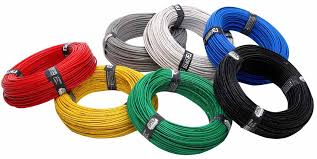Since electric cars (EVs) are becoming more popular, understanding EV cablescompatibility and performance is essential for efficient and secure charging. EV cables are essential components of the charging infrastructure linking your car to a power source. This is what you should be aware of in order to select the right cable for the best functionality and compatibility.
1. Types of EV Cables: There are two kinds of EV cables: Type 1 and Type 2. The Type 1 cables are typically used with old EV models, specifically those in North America and Asia, while Type 2 cables are standard in Europe and the latest models worldwide. It’s crucial to match the type of cable to the port on your car’s charger to ensure compatibility. In addition, cables can come in different lengths. So, choose one that suits your charging configuration whether at home or in charging stations at public locations.
2. Charge Levels EV cables support different charging levels, which affect how quickly your vehicle charges. Level 1 charging utilizes a standard household outlet and is the slowest method. Level 2 charging needs a special EV charger and provides quicker charging. Certain EVs as well as chargers allow level 3 as well as DC fast charging, which delivers rapid charging but requires specialized cables and infrastructure. Ensure your cable supports the desired charging level to ensure an efficient and efficient charging.
3. Cable Specifications: When selecting an EV cable, you should consider the current rating of the cable and the size of its conductors. Cables are typically rated for 16A and 32A and 32A cables offering more rapid charging. The cable must also be weatherproof and durable especially if it is employed outdoors. The best cables are built to endure various environmental conditions, like UV exposure and temperature extremes, ensuring durability and longevity.
4. Safety and Certification: Safety is a top priority when dealing with high-voltage charging systems. Be sure your EV cables you pick is certified by recognized standards like UL, CE, or IEC. Certified cables are safe and meet quality standards, which reduces the risk of electrical malfunctions or dangers. Additionally, cables should have features such as thermal protection built-in to prevent overheating.
5. Future-proofing: Think about securing your charging system for EVs by selecting cables that support faster speed charging and can be used with a variety of electric vehicles. As technology develops and technology improves, having a cable that can handle greater amperages and the latest charging standards will prevent you from having to upgrade sooner.
6. Maintenance and Care: Properly taking care of your EV cable ensures its durability and efficiency. Regularly inspect the cable for signs degeneration or wear and ensure it is kept in good condition and dry. Store the cable properly when it is not in use to protect it from the possibility of damage and prolong its life.
In the end, knowing EV cables is crucial to ensuring effective and secure charging. If you choose the correct type, specification and the quality of the cable, you will be able to enhance your EV charging experience and future-proof your setup against changing technologies.
